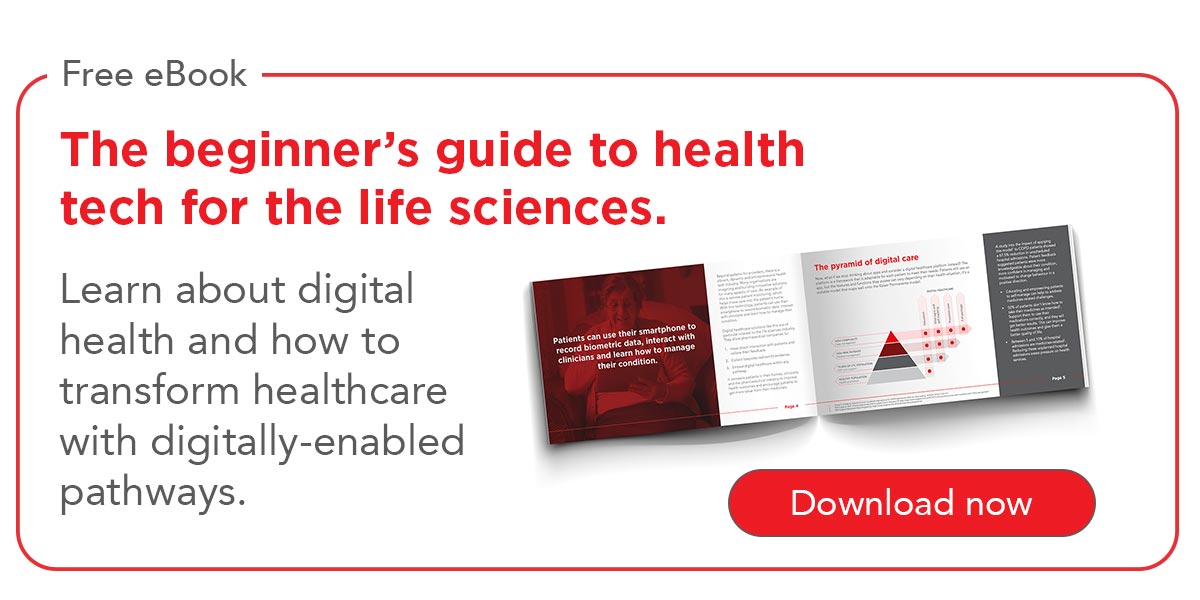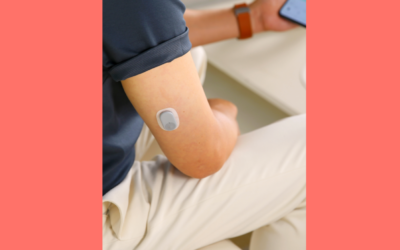By Steve Marriott on April 26, 2021
What are digital patient pathways?
Patient pathways describe the journey a patient takes from a GP referral to the completion of their treatment. They let patients know what to expect and help to plan services. Components of patient pathways include:
- treatment
- medication
- education
- self-care
- preparing for discharge from hospital
A digital patient pathway has one or more aspects where computer technology enhances care. An example would be remote monitoring to enable self-care.
There are many reasons for the NHS to commission digital services. There is a compelling case for the pharmaceutical industry to embrace digital patient pathways too.
5 reasons for pharma to use digital patient pathways
1. Add value for patients
The best value you can offer patients is to keep them well and make sure their quality of life is as good as it can be. Integrating digital elements into patient pathways can support these goals.
Medicines adherence is a massive challenge. As many as half of all medicines for chronic conditions are not taken as intended1. How can digital healthcare tools help improve this?
- Educational resources that are relevant to each patient can help them understand their conditions and medicines.
- Direct interaction between patients and their clinicians can improve relationships and build trust. It’s an opportunity for patients to ask questions about their medications too.
- Reminders can alert patients when it’s time to take their medicines.
Support people to use their medicines correctly, and they will get better results. This can improve health outcomes and give them a better quality of life.
2. Build patient-centric care
Digital health can empower people to self-manage their health and stay well. The NHS says,
“supporting patients to be actively involved in their own care, treatment and support can improve outcomes and experience for patients”2.
Remote patient monitoring is an excellent way for you to enable this support:
- It involves patients in their healthcare and encourages self-care.
- Educational resources help patients learn about their condition and medication.
- Recording biometric data helps patients to understand when their health changes. When that happens, they get better at knowing what to do, too.
Being more involved in their healthcare and knowing how to control it can encourage behavioural change.
3. Get real-time patient feedback
Remote monitoring technologies can capture patient-recorded information about how they are feeling.
Patients’ answers to clinically validated and appropriate question sets provide a picture of their health each day. This can include:
- Symptoms they experience and how they compare to the day before.
- How the patient is feeling in general.
- If they have taken their medications.
Using cloud technology, this patient feedback can be available straight away.
4. Build a bespoke evidence base
Not having access to daily recorded data is a massive challenge for the pharmaceutical industry. Integrating digital elements into patient pathways makes this possible.
Patients can record accurate biometric data using their smartphone or tablet. Connected Bluetooth devices can record temperature, heart rate, oxygen levels, blood pressure and weight.
Combined with the subjective feedback mentioned above, this data creates valuable real-world evidence tailored to your product.
5. Create differentiation

In a market saturated with many similar products, embedding digital care is an opportunity to differentiate. Adding value for patients, clinicians and service providers can give you a vital competitive edge.
There are many ways you can apply digital health to build this value into patient pathways:
- Help patients to be more involved in their care, learn about their condition and empower them to take control.
- Remove areas of friction in healthcare service provision.
- Save clinician time and increase caseload capacity.
- Reduce the cost of service provision.
- Use data to show improved outcomes.
Next Steps
Digitally-enabled patient pathways have much to offer. They can encourage self-care, improve outcomes and improve service delivery. The benefits are not limited to the NHS; the pharmaceutical industry can benefit too. Download our guide to discover how to embrace and deploy digital health strategies.
References:
- https://www.raconteur.net/healthcare/pharmaceuticals/medication-adherence/
- https://www.england.nhs.uk/ourwork/patient-participation/



